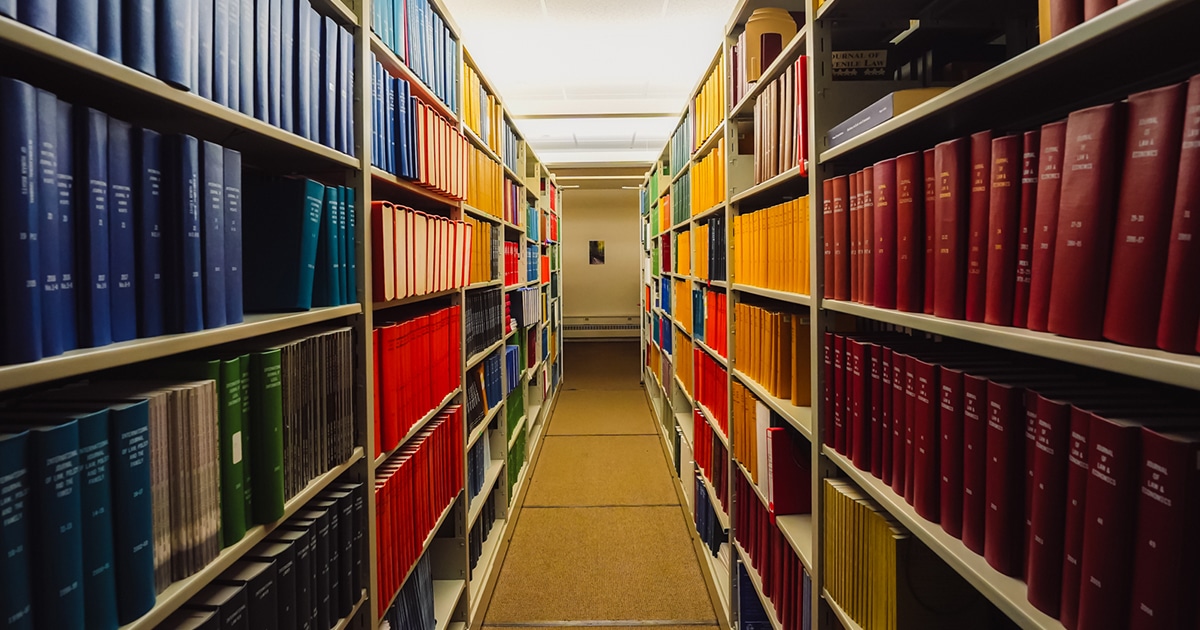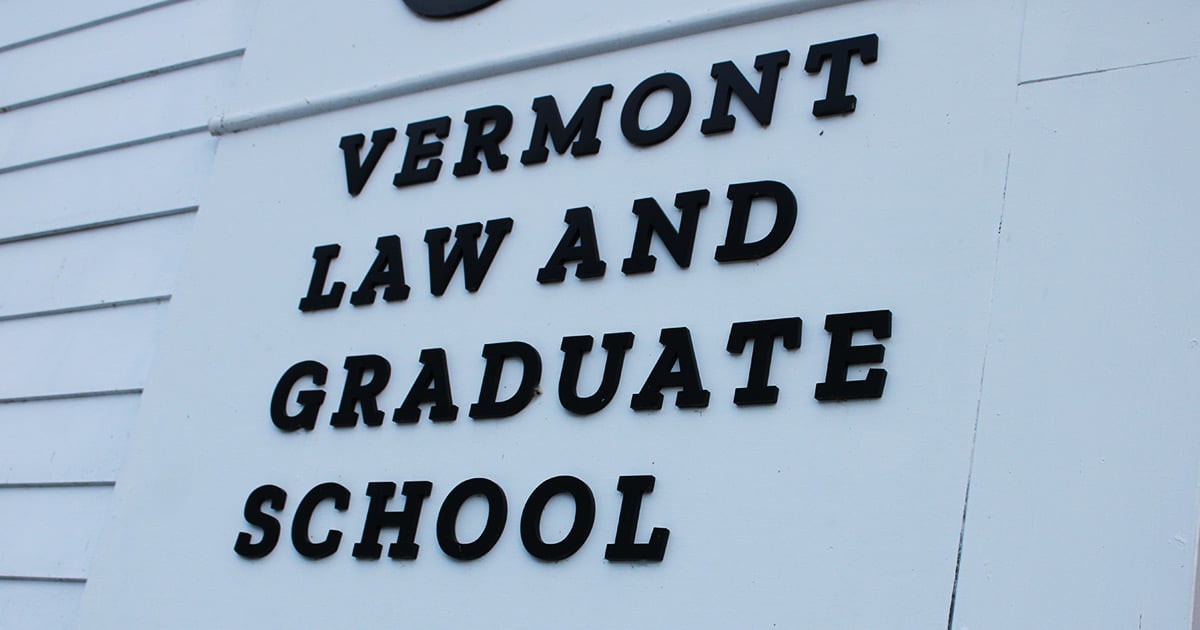
Center for Agriculture and Food Systems
Overview
The Center for Agriculture and Food Systems (CAFS) is a research-based institution housed at Vermont Law and Graduate School. With our students, we produce original scholarly research in the field of food and agriculture law and policy to serve the broadest range of food system stakeholders.
With local, regional, national, and international partners, CAFS addresses food system challenges related to food and nutrition security and affordability, farmland access, food system workers, farm viability, local economies, and public health, among others. CAFS works closely with its partners to provide legal services and develop resources that respond to their needs. Through CAFS’ Food and Agriculture Clinic and Research Assistant program, Vermont Law and Graduate School students work directly on projects alongside partners nationwide, engaging in innovative work that spans the food system.
Curriculum
CAFS offers a comprehensive sustainable food and agriculture law and policy program with residential, distance learning, and summer courses. Students can also gain clinical training in our Food and Agriculture Clinic, one of the few in the nation.
Experiential
The Food and Agriculture Clinic
The Food and Agriculture Clinic (FAC) is one of the only law school clinics exclusively devoted to the food system. The FAC provides students with the opportunity to engage in food system law and policymaking in a practical setting. Student clinicians work with local, regional, and national partners and clients to research, develop, and disseminate legal resources for food system stakeholders, including farmers and food enterprises, farmworkers, consumers, administrators, legislators, and advocates. Through a range of projects, students explore substantive law and policy issues in the field of food and agriculture while refining legal research and writing skills, and developing communication, project management, and leadership skills.
Courses
Provides students with a working knowledge of the general principles of administrative law; implementation of legislative policy through administrative agencies, including the role of administrative agencies in the governmental process, rule making, adjudication, and judicial review of agency actions.
Examines the legal challenges raised for society to adapt to the impacts of climate change. Students will examine the confusion and inadequacy of current legal and policy structures to address new risks, and the need for alternative tools in light of rapidly changing circumstances.
Climate change is the most profound social and environmental issue of the 21st century. This course will integrate the emerging science and law of climate change along with economic and inter-generational equity aspects of the problem. We will consider how existing federal laws such as the Clean Air Act and NEPA may be used to address climate change as well as how new more comprehensive laws may be fashioned. Different policy instruments will be considered including carbon taxes and emissions trading.
An exploration the types of environmental risks and issues that are commonly confronted in a variety of business-related transactions such as the acquisition of all of the stock of a company, asset purchases, real estate deals, leases and financings. Special focus on how the environmental issues in transactions are identified and managed in the course of a deal. The unique environmental issues associated with the purchase and redevelopment of contaminated properties or so-called Brownfield sites are also covered.
An introduction to the broader categories of protecting human health and the environment to both assess the successes and failures of environmental protection in the U.S. and gain more detailed substantive knowledge of several key statutes.
Provides an opportunity to obtain field based experience on a part-time basis. A JD skills class.
Presently, the United States is experiencing a resurgence in public concern over the safety of our food supply due to biotechnology, pesticide use, and unsafe food packaging, etc. This course will introduce students to the laws and policies that govern food regulation and policy in the United States.
This course addresses the legal landscape of global hunger, and the ways in which climate change, population growth and economic inequality intersect with food security law and policy challenges. We’ll address how “food security” and “hunger” are defined and measured for policy-making purposes.
Feeding a growing global population—9.6 billion by 2050—without destroying our planet is one of the critical challenges of our time. Overlay the impacts of climate change, international trade, and the influence of corporations on agricultural production, and this is one of the most complex areas of the law and policy. It is also one of the fastest growing areas, fueled by the food movement both domestically and internationally, greater public awareness of food issues and concerns related to the healthfulness of our food. Indeed, this is an exciting time to be studying food systems law.
Examines the tools available to preserve ecological diversity, historic places, working lands, scenic viewsheds, and open space, such as conservation easements, purchase of sensitive lands, and private/public partnerships for land conservation. The course provides a practical understanding of both the legal and nonlegal dimensions of land conservation transactions involving conservation easements.
An introduction to land transaction and finance, covering the study of the title system, title insurance and land contracts, the private development process, and modern real estate financing, including private financing and public financing. The course also introduces the public-private development process including redevelopment, military base conversion and Brownfield’s redevelopment.
A basic course in land use law. Covers planning and all manner of private and public land use regulation from common interest communities, to subdivisions, to zoning, to variances, to planned development districts, to transit-oriented development, to traditional neighborhood design, to form-based codes, to growth management.
A basic course in land use law. Covers planning and all manner of private and public land use regulation from common interest communities, to subdivisions, to zoning, to variances, to planned development districts, to transit-oriented development, to traditional neighborhood design, to form-based codes, to growth management.
Examines the interaction of state, federal, and international regimes in the regulation of the marine environments through the examination of issues such as the marine environment as a source of energy; the nonrenewable resources of the seabed; and the winds, waves, currents, and temperatures of the sea itself. An AWR class.
Introduces students to the breadth of policies and legal authorities included in the Farm Bill that Congress re-evaluates every 5 years. Time will be spent on farm safety nets, conservation and nutrition policies. This course will also demonstrate the depth that a modern farm bill reaches with impacts on private working lands and consumers. International trade, clean energy, forestry, rural development, and overall food policies will be reviewed.
Covers the evolution and regulation of animal agriculture in America, contrasted with farmed animal welfare policies in other developed nations. Will evaluate the long-term sustainability of CAFO food production specifically and animal food production generally. Students will explore the pressures from increased international trade in agricultural products.
Water is the planet’s most precious natural resource. Deciding how it will be shared among competing demands is one of a society’s most challenging questions. Water Resources Law is a review of the law and policies concerned with the allocation of water resources in the United States. This course will examine the three main systems of water law in the United States: Eastern riparian systems, the prior appropriation doctrine of the West, and the nationally diverse laws regulating the use of groundwater.
Online Courses
Earn a Master of Public Policy Policy degree with a food and agricultural policy track or an LLM in Food and Agriculture Law degree online or take food and agriculture law and policy courses online as a non-degree-seeking student.
For more information visit the VLGS Online Learning page.
Food and Agriculture Law JD Specialization
Vermont Law offers a systems-based curriculum to students who want to specialize in law and policy related to the food system. JD students specializing in food and agriculture law can choose from an expansive list of courses related to food and agriculture.
For more information visit the VLGS Concentration in Food and Agriculture Law page.
Master of Food and Agriculture Law and Policy
The Master of Food and Agriculture Law and Policy (MFALP) degree program is designed for students who want to pursue intensive study and practical training in food and agricultural law and policy. The MFALP degree program trains students to effectively engage the institutions and individuals that influence food and agriculture law and policy and formulate law and policy solutions.
For more information visit the VLGS Master of Food and Agriculture Law and Policy page.
LLM in Food and Agriculture Law
Designed for students who have already earned a law degree and wish to pursue intensive study and practical training in Food and Agriculture Law, the LLM is open to those who have graduated with a JD degree from a U.S. law school or have earned an equivalent degree in another country.
For more information visit the VLGS LLM in Food and Agriculture Law page.
Concentration in Food and Agriculture Law
This concentration focuses on coursework related to food and agriculture law.
For more information visit the VLGS Concentration in Food and Agriculture Law page.
CAFS Resources
The Center for Agriculture and Food Systems works with partners across the country to develop reports, issue briefs, guides, and other resources for farmers, policymakers, and other food systems stakeholders. Browse a few examples of CAFS’s resources below.
This guide will help gleaning organizations understand and manage some of the food safety liability risks of value-added production.
Because they interact with many parts of the food system, food hubs must comply with different food safety laws and regulations. That compliance may be more complex than it would be for food system actors who only work at one level of the food system. This resource, in conjunction with legal advice, can help food hub leaders understand the legal landscape in order to build compliance and risk management strategies.
Current use programs—which generally allow farmers to pay taxes on their land at current (agricultural) value rather than its assessed value for another non-farming use—are an important tool in the farmland preservation toolbox.
“Defensive publication” keeps genetic resources available without use restrictions or liability for infringement, and for a fraction of the cost of pursuing a patent. For plant breeders, the process can make genetic material more widely available for research. Ultimately, this could also make seeds more affordable and accessible for farmers. This guide outlines practices for breeders to keep genetic resources in the public domain.
As FDA considers redefining the term “healthy” to make it align with current nutrition science and the most recent Dietary Guidelines for Americans, this brief explores the controversial use of “healthy” claims on food product labels.
Among types of food fraud, seafood fraud is prolific—and distinct in its implications for natural resource management. Currently, there is no single authority that regulates seafood in the United States, resulting in a patchwork approach that simultaneously provides opportunities for specialized expertise while also allowing for significant gaps in enforcement. This report examines how the United States currently regulates seafood and makes recommendations for policymakers to address the issue of seafood fraud both domestically and abroad.
“Local” is frequently used to describe food in both the law and the marketplace—but the term remains largely undefined. And when it comes to local food legislation, that vagueness can make it difficult to meet policy goals and evaluate impacts. This report examines the term “local” from a legal perspective. It also draws from a nationwide scan of state policies to compare different approaches to defining the term. We hope it will be useful to policymakers, researchers, and advocates who are involved in creating or evaluating local food legislation.
While many of us have a vague idea of what agritourism means, there’s no standard legal definition—and policies are evolving quickly. That’s why CAFS released a report comparing state agritourism laws across the country and identifying legislative trends. The goal is to assist policymakers in drafting effective agritourism legislation addressing key areas like liability, zoning, fundings, taxation, and licensing.
Country of Origin Labeling is designed to help consumers make more informed choices and to support domestic growers. However, standards have the potential to confuse consumers as to what “Product of USA” means.
People
CAFS Faculty, Staff, and Fellows
Laurie Beyranevand JD’03
- Director, Center for Agriculture and Food Systems
- Pescosolido Professor of Food and Agricultural Law and Policy
- Professor of Law
Wendy Chen
- Staff Attorney
Lindsey Cole
- Project Manager and Research Fellow
Francine Miller
- Senior Staff Attorney and Adjunct Professor
Lihlani Nelson
- Deputy Director and Senior Researcher
Austin Price
- Communications Manager
Emma Scott
- Associate Professor
- Director, Food and Agriculture Clinic
Emily Spiegel
- Senior Research Fellow
Liz Turner
- Food and Agriculture Fellow
CAFS Alumni
Our alumni have gone on to work for:
- AgriEcology Services
- American Farmland Trust
- ASPCA
- Artisan Grain Collaborative
- California Certified Organic Farmers
- Columbia Center for Sustainable Investment
- Corn Refiners Association
- Conservation Law Foundation
- Dunkiel Saunders
- Duquesne University School of Law
- Department of New York State
- Environmental Working Group
- Farm Commons
- Food Connects
- Food and Drug Administration (FDA)
- Food Tank
- Harvard Food Law and Policy Clinic
- Sustainable Nantucket
- Langrock Sperry & Wool LLP
- Maine Farmland Trust
- Mars
- National Farm to School Network
- National Sustainable Agriculture Coalition
- National Young Farmers Coalition
- Organic Farming Research Foundation
- Rural Vermont
- US Senate Agriculture Committee
- Slow Food Charleston
- Vermont Agency of Agriculture
- United Nations Food and Agriculture Organization
- United Natural Foods, Inc.
Clients and Partners
The Center for Agriculture and Food Systems partners with organizations across the country to address food systems challenges through law and policy. Our partners and clients include:
Agrarian Trust
Farm to Institution New England
FSC/LAF Federation of Southern Cooperatives
Food and Agriculture Organization of the United Nations
Food Law and Policy Clinic – Harvard Law School
Center for a Livable Future – John Hopkins
Justicia Migrante/Migrant Justice
National Farm to School Network
National Sustainable Agriculture Coalition
The Northeast Center to Advance Food Safety
Northeast Organic Farming Association of Vermont
Public Health Law Center at Mitchell Hamline School of Law
Rudd Center for Food Policy & Obesity – UConn
Rural Advancement Foundation International
Socially Disadvantaged Farmers and Ranchers Policy Research Center – Alcorn
CAFS News and Events

Faculty and Staff in the News – March 2025
April 4Below is a selection of recent news highlights featuring members of Vermont Law and Graduate School’s faculty and staff. Blood, Body Parts and Bacteria Pollute Wastewate…

New Resource Launch: State Farm to School Policy Handbook and Database: 2002-2023
April 1SOUTH ROYALTON, Vt. (April 1, 2025)– The National Farm to School Network and the Center for Agriculture and Food Systems at Vermont Law and Graduate School have released the…

Faculty and Staff in the News – February 2025
March 5Below is a selection of recent news highlights featuring members of Vermont Law and Graduate School’s faculty and staff. Experts Say It Won’t Be Easy for Trump to …

Faculty and Staff in the News – January 2025
February 4Below is a selection of recent news highlights featuring members of Vermont Law and Graduate School’s faculty and staff. Holiday Stress: A Lawyer’s Guide to Balanc…
CAFS Newsletter
Get the latest updates from the Center for Agriculture and Food Systems.
Work With Us
Are you an organization interested in working with CAFS to research specific policy issues and develop legal resources? If so, please email cafs@vermontlaw.edu and include a few brief statements describing your organization, the legal or policy issue and/or the goals of your project, the type of legal or policy assistance you’re seeking, and an anticipated timeline.
Are you a Vermont farmer, food entrepreneur, or food system organization seeking legal assistance for your business? Please submit a request for assistance through the Vermont Legal Food Hub or the online intake form.
Contact Us
For questions about accessibility, if you need additional accommodations for a specific document, or have any other questions, please contact cafs@vermontlaw.edu.



